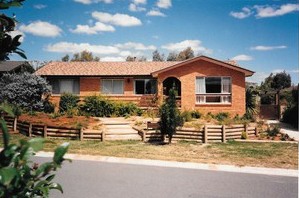
Property # 21, marked FOR SALE, sold for $900,000 in December 2010
Property marked 2 sold in May 2006 for $925,000
Property marked 3 sold in March 2006 for $750,000
Property marked 5 is FOR SALE at $1,990,000
The state of the market - no, not the share market but the real estate market - has become topical again after the recent Bali trip. A relocation to Bali - at least for part of the year - looks quite tempting but only if and when "Riverbend" is sold. Is "Riverbend" 's price of $2,000,000 still realistic in today's market?
There are seventeen waterfront properties down Sproxton Lane which is a
cul-de-sac, at the end of which is "Riverbend". These seventeen properties are each less than 2000m² and on average 1500m² in land area, whereas "Riverbend" comprises close to 30,000m².
Here is a list of recent sales in Sproxton Lane:
# 25 sold in March 2006 for $750,000.
# 19 sold in May 2006 for $925,000.
# 3 sold in March 2007 for $800,000.
# 9 sold in October 2010 for $970,000.
# 21 sold in December 2010 for $900,000.
# 33 sold just now for $950,000.
Two properties are currently for sale:
# 23 is FOR SALE at $1,600,000.
# 27 is FOR SALE at $1,990,000.
The property nearest to "Riverbend", # 33, a cosy timber cottage on 1900m² of land, has just now been sold for $950,000. Compared to it, "Riverbend", or # 35, with its substantial two-storey brick house and other improvements on almost 30,000m² of land, seems a bargain at $2,000,0000.
Come on, all ye bargain-hunters!




































